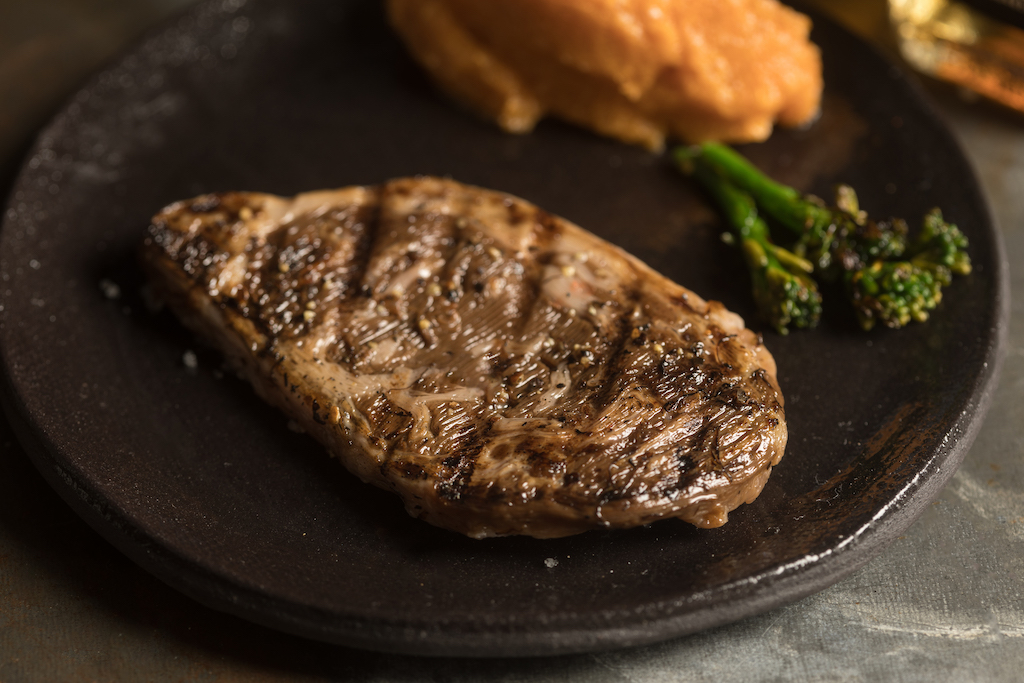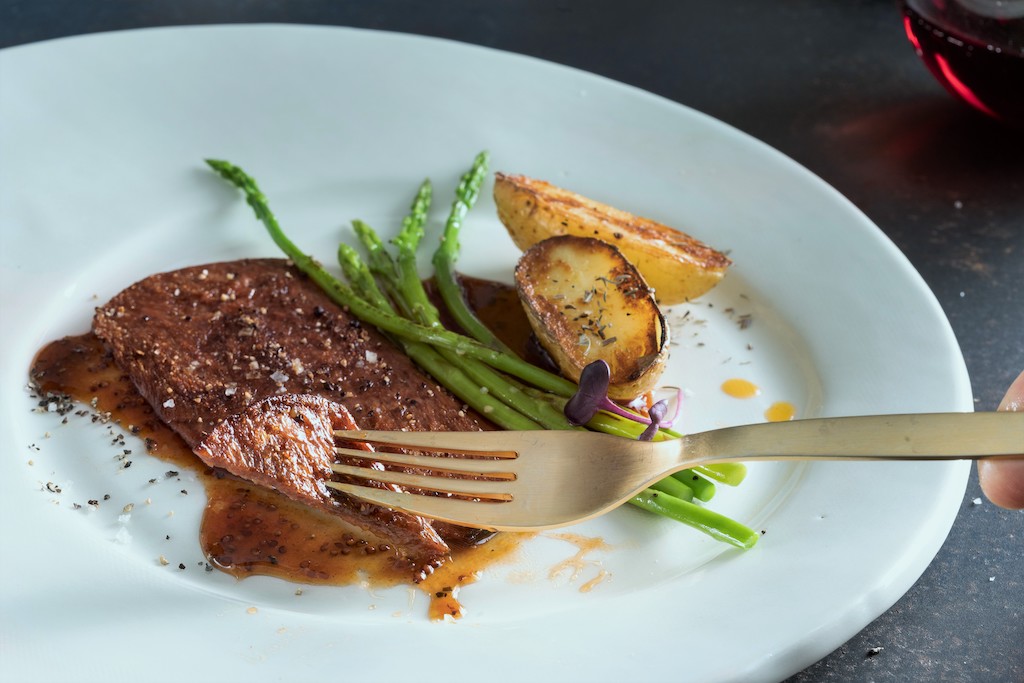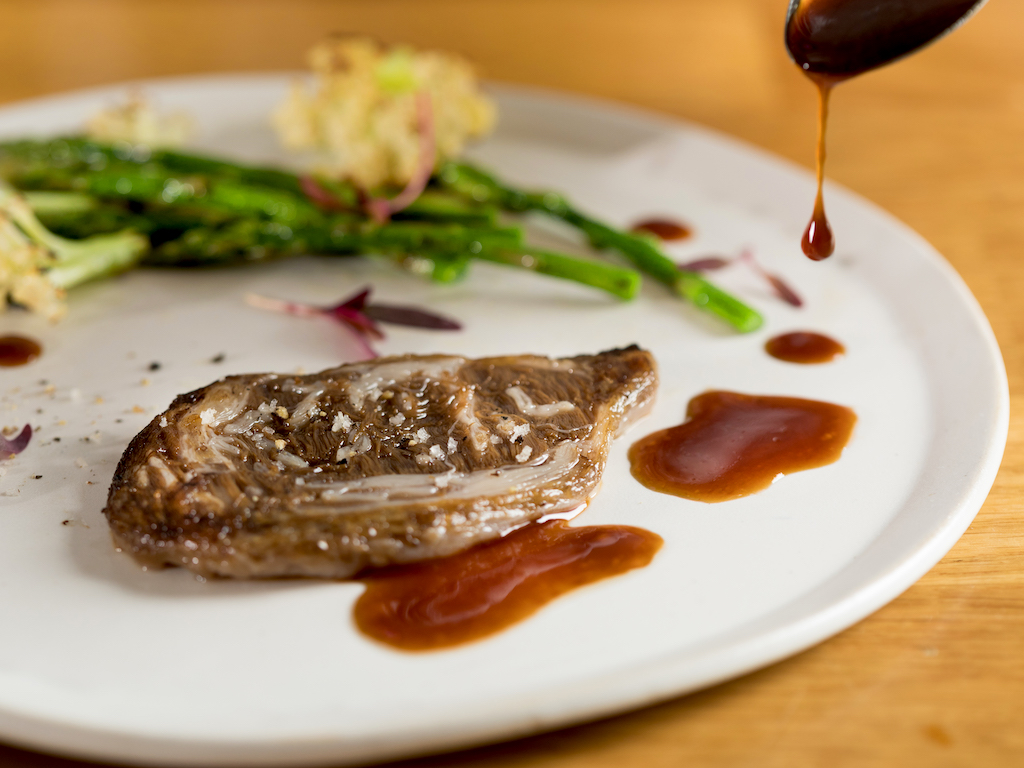4 Mins Read
Israeli food tech Aleph Farms has announced a new partnership with Brazilian food conglomerate BRF, who owns the likes of Sadia, Perdigão and Qualy, to bring cell-based meat to Brazil. The new collaboration between the two firms will involve co-developing and producing cultivated proteins using Aleph Farms’ patented technology, coming shortly after a similar agreement launched in Japan between the Rehovot-based startup and Mitsubishi.
Announced on Thursday (March 4), the new collaboration will see Aleph Farms work with BRF to bring cell-based meat to Brazil via a co-development, production and distribution agreement. Using Aleph Farms’ patented production platform, BioFarm, BRF will be able to manufacture, distribute and launch Aleph-backed cell-based beef in Brazil, the world’s third largest consumer market for cattle-based products.
It comes on the heels of Aleph Farms’ unveiling of the world’s first cultivated, slaughter-free ribeye steak using 3D bioprinting and cellular agriculture technologies, without the use of GMOs, in February this year, adding to its existing portfolio of products, which include a cultured thin-cut steak that has notably been trialled by Israeli prime minister Benjamin Netanyahu.
“This partnership will strengthen BRF’s supply chain and reduce its environmental impact, while diversifying the company’s product offering to meet the growing consumer demands for a variety of meat products,” said the company in a press statement.

We have witnessed an increasing global demand for new sources of protein driven by several factors, namely environmental concerns, new diets and lifestyles, which has spurred the growth of new dietary genres including flexitarianism, vegetarianism and more.
Lorival Luz, CEO, BRF
Santa Catarina-headquartered BRF is one of the world’s biggest food conglomerates, and its current brands are mainly focused on meats, processed foods and frozen food products, with some of the most iconic labels under the group include Sadia, Perdigão, Qualy, Paty, Dánica and Bocatti.
The latest move by the food and meat producing giant is part of its new strategy to shift towards alternative proteins in response to changing consumer appetites, particularly amid the coronavirus pandemic, which has refocused global attention on food safety, provenance, sustainability and health.
“BRF is ready and charged to play a leading role in this food revolution and be an active participant in one the greatest industry transformations of this generation,” commented Lorival Luz, CEO of BRF.
“We have witnessed an increasing global demand for new sources of protein driven by several factors, namely environmental concerns, new diets and lifestyles, which has spurred the growth of new dietary genres including flexitarianism, vegetarianism and more,” Luz added.
In a further reaffirmation of the alternative protein strategy that BRF is now pursuing, the corporation’s director of innovation Sergio Pinto said: “By producing high-quality sustainable cultivated meat, we can further establish our role as agents of transformation in the food industry, by offering the latest innovations in the production of meat.”

As one of the largest beef producers in the world, Brazil is a strategic market for us.
Didier Toubia, Co-Founder & CEO, Aleph Farms
Aleph Farms says that it marks yet another step in the startup’s global expansion strategy and will work to accelerate the commercialisation of its cell-based beef products around the world. It’s the second international partnership that Aleph Farms has made, the first being an agreement with Japanese corporate giant Mitsubishi to bring cultivated meat to Japan. So far, Singapore stands as the only country to have given the go-ahead to sell cultured proteins.
“This new partnership advances Aleph Farms’ strategy to integrate into the existing ecosystem as part of our go-to-market plans. Leveraging the expertise and infrastructure of leading food and meat companies will drive a faster scale-up of cultivated meat and eventually lead to a broader positive impact,” said Didier Toubia, co-founder and CEO of Aleph Farms.
Toubia continued to highlight the disruption that cell-based meats will have in the Brazilian market in particular, given its status as a major world producer and exporter of beef, and will align with Aleph Farms’ goal to help alleviate the enormous carbon footprint associated with conventional animal agriculture.
“As one of the largest beef producers in the world, Brazil is a strategic market for us. We have been impressed by the strong commitment from BRF management to innovation and sustainability. We are convinced that shared values are the key to a successful long-term partnership.”
All images courtesy of Aleph Farms.




